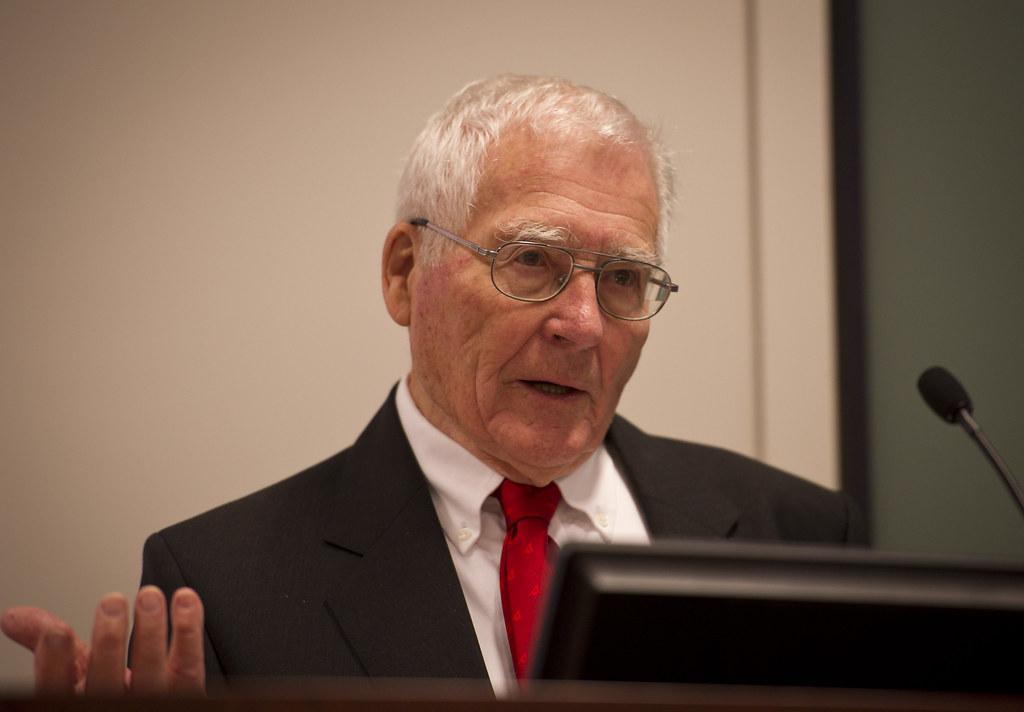In the realm of climate science, few names reverberate as profoundly as James Lovelock. Known for his groundbreaking contributions to environmental studies and the Gaia hypothesis, Lovelock’s work has indelibly shaped our understanding of Earth’s intricate systems. Join us on a journey through the impactful legacy of James Lovelock as we delve into his insights on climate dynamics and the ever-evolving relationship between humanity and our planet.
Table of Contents
- Understanding James Lovelock’s Contribution to Climate Science
- Exploring the Gaia Theory and its Impact on Environmental Sustainability
- Analyzing James Lovelock’s Climate Change Predictions and Their Significance
- Implementing James Lovelock’s Recommendations for Addressing Climate Crisis
- Q&A
- Wrapping Up
Understanding James Lovelock’s Contribution to Climate Science
James Lovelock, a pioneering figure in climate science, is best known for his groundbreaking Gaia hypothesis, which proposes that the Earth functions as a self-regulating system. Lovelock’s unique perspective views the Earth as a living organism, where all components interact to maintain optimal conditions for life. This holistic approach has revolutionized the way we perceive the planet and its interconnected systems.
One of Lovelock’s significant contributions to climate science is the development of the concept of Earth system science, emphasizing the intricate relationships between the atmosphere, oceans, land, and living organisms. His work highlights the critical importance of understanding these complex interactions to address contemporary environmental challenges effectively. By recognizing the Earth as a dynamic and interconnected entity, Lovelock’s research continues to inspire scientists and policymakers to adopt holistic approaches in tackling climate change and promoting sustainability.
Exploring the Gaia Theory and its Impact on Environmental Sustainability
Discover the profound relationship between the Gaia Theory and environmental sustainability. As proposed by James Lovelock, this fascinating concept views Earth as a self-regulating organism, where living organisms interact with the non-living components to maintain the delicate balance of life on our planet.
Through the lens of Gaia Theory, we come to appreciate the intricate web of connections that shape ecosystems and influence climate patterns. By understanding this interconnectedness, we can better grasp the importance of preserving biodiversity, reducing pollution, and mitigating the impact of human activities on the environment.

Analyzing James Lovelock’s Climate Change Predictions and Their Significance
Exploring the visionary perspective of James Lovelock on climate change unveils a world of fascinating insights and bold predictions. His holistic Gaia theory, considering Earth as a self-regulating organism, challenges conventional views on environmental dynamics.
<ul>
<li>Unveiling the interconnectedness of climate systems</li>
<li>Highlighting the urgency of sustainable practices</li>
<li>Posing thought-provoking questions on humanity's relationship with the planet</li>
</ul>
<p>Delving into Lovelock's prophecies opens a realm where scientific rigor meets philosophical depth. His stark warnings and calls for transformative action resonate profoundly in the context of our changing world.</p>
Implementing James Lovelock’s Recommendations for Addressing Climate Crisis
James Lovelock’s recommendations offer valuable insights into combating the pressing issue of climate change. Embracing his ideas could be a step towards a more sustainable future for our planet. By putting his suggestions into action, we can strive towards a healthier environment for generations to come.
- Utilize renewable energy sources: Shifting towards solar, wind, and hydroelectric power can significantly reduce carbon emissions and lessen our reliance on fossil fuels.
- Promote biodiversity: Protecting and restoring ecosystems play a crucial role in maintaining the balance of nature, which is vital for the overall health of our planet.
- Opt for sustainable practices: Embracing eco-friendly methods in agriculture, industry, and daily life can contribute to mitigating the impacts of climate change.
Implementing James Lovelock’s vision requires a collective effort from individuals, communities, and governments worldwide. It involves making conscious decisions to prioritize the well-being of the Earth and its inhabitants over short-term gains. Embracing his recommendations can pave the way for a greener and more resilient world, fostering harmony between humanity and nature.
| Recommended Action | Impact |
|---|---|
| Reduce single-use plastics | Decreased pollution in oceans and landfills |
| Support reforestation efforts | Enhanced carbon sequestration and biodiversity |
Q&A
**Q&A: Exploring James Lovelock’s Perspectives on Climate**
Q: Who is James Lovelock, and why is he significant in the realm of climate science?
A: James Lovelock is a renowned British scientist, environmentalist, and futurist best known for proposing the Gaia hypothesis, which suggests that the Earth functions as a self-regulating organism. His innovative perspective on the interconnectedness of the planet has significantly influenced climate science and environmental consciousness.
Q: What are James Lovelock’s views on climate change, and how have they evolved over time?
A: Lovelock’s stance on climate change has evolved from early alarms about environmental degradation to more controversial statements, such as his belief that global warming has progressed beyond human intervention. Despite some skepticism towards traditional climate change mitigation strategies, his unique insights continue to spark debates and shape discussions on our planet’s future.
Q: How does James Lovelock’s Gaia theory impact our understanding of climate systems and sustainability?
A: The Gaia theory proposes that the Earth operates as a complex, self-regulating system that maintains conditions suitable for life. This perspective challenges conventional views on climate change by emphasizing the Earth’s inherent resilience but also underscores the urgent need for humans to act responsibly to ensure the planet’s long-term viability.
Q: What are some criticisms of James Lovelock’s positions on climate change, and how does he respond to them?
A: Critics have questioned Lovelock’s more fatalistic views on climate change and his skepticism towards certain environmental interventions. While he acknowledges the validity of such criticisms, Lovelock argues that his intent is to provoke critical thinking and stimulate innovative solutions to the pressing challenges facing our planet.
Q: How can James Lovelock’s ideas inspire action and drive sustainable practices to address climate change?
A: Despite the controversies surrounding his viewpoints, James Lovelock’s work serves as a catalyst for rethinking our approaches to climate change and sustainability. By engaging with his ideas and leveraging his insights, individuals, communities, and policymakers can find inspiration to adopt more holistic and long-term strategies for safeguarding the Earth’s future.
Wrapping Up
As we delve into the fascinating world of James Lovelock’s unique perspective on climate science, we are left with a profound appreciation for his groundbreaking contributions to our understanding of the Earth’s complex systems. Embracing the Gaia hypothesis and challenging traditional views, Lovelock’s work continues to inspire critical thinking and innovation in the realm of climate research. Whether you are a seasoned environmental enthusiast or a curious mind eager to explore new frontiers, the story of James Lovelock serves as a reminder of the interconnectedness of our planet and the importance of nurturing a symbiotic relationship with nature. Let us carry forward the spirit of inquiry and stewardship that Lovelock embodies, as we strive to create a sustainable future for generations to come. Thank you for joining us on this enlightening journey through the visionary mind of James Lovelock.



0 Comments